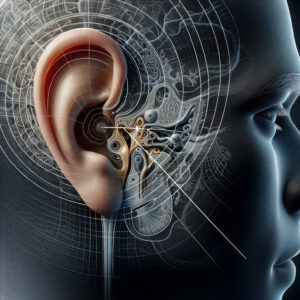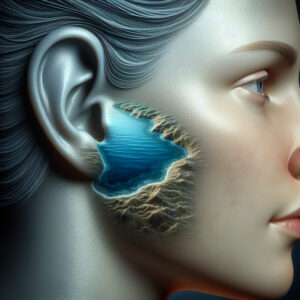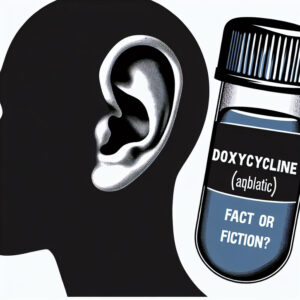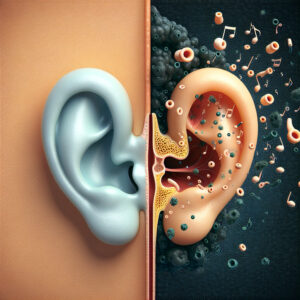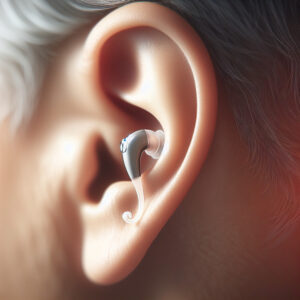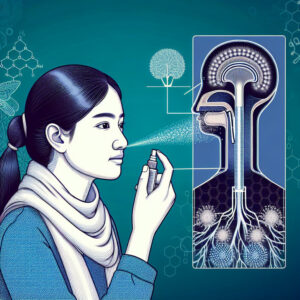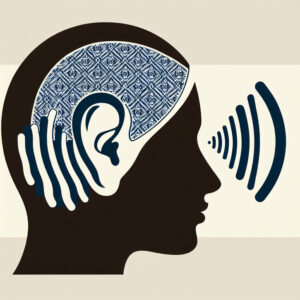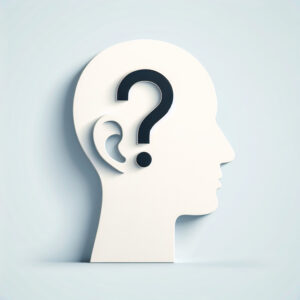The Science of Sound: Exploring Bone Conduction Deafness
Understanding Bone Conduction: The Basics What is Bone Conduction? Bone conduction is a fascinating auditory mechanism, often overshadowed by the more conventional air conduction pathway. This natural phenomenon allows for sound waves to bypass the outer and middle ears, transmitting directly through the bones of the skull to the cochlea. Essentially, bone conduction facilitates the… Read More
Navigating Through Life with Ear Disturbance: Tips for Management
Navigating Through Life with Ear Disturbance: Tips for Management Understanding Ear Disturbance: A Primer What Constitutes Ear Disturbance? Ear disturbance encompasses a range of auditory issues that can profoundly impact an individual’s quality of life. It includes symptoms such as tinnitus, where one hears a constant ringing or buzzing, to intermittent hearing loss and sensitivity… Read More
Aminoglycosides Hearing Loss: Symptoms, Diagnosis, and Treatment Options
Introduction to Aminoglycosides and Hearing Loss Welcome to our in-depth exploration of aminoglycosides hearing loss, a vital topic for patients and healthcare professionals alike. Aminoglycosides are a class of antibiotics used to treat serious infections caused by gram-negative bacteria. These powerful medications, including drugs such as gentamicin, tobramycin, and amikacin, are known for their effectiveness,… Read More
Doxycycline Hearing Loss: Myth or Reality?
Introduction to Doxycycline and Hearing Health Understanding the relationship between medications and hearing is crucial because it allows us to make informed decisions about our health. Doxycycline, a well-known antibiotic, is often prescribed for a variety of bacterial infections. However, concerns about its potential side effects, particularly doxycycline hearing loss, have surfaced. This blog post… Read More
The Surprising Link Between Ear Wax Buildup Tinnitus and Hearing Health
Introduction to Ear Health and Common Misconceptions When it comes to maintaining overall health, ear care is often overlooked, overshadowed by more prominent health advice. Yet, ear health is crucial for our ability to communicate and experience the world. Common misconceptions about ear care can lead to improper practices that jeopardize hearing health. For instance,… Read More
Living with Bilateral Age Related Hearing Loss: Tips for Daily Life
Understanding Bilateral Age-Related Hearing Loss Age-related hearing loss, or presbycusis, is a common condition that affects individuals as they grow older. It often results from changes in the inner ear and auditory nerve, which can reduce the ability to hear higher frequencies. Bilateral age-related hearing loss refers to hearing impairment that occurs in both ears,… Read More
Eustachian Tube Hearing Loss: Prevention Strategies and Effective Remedies
Introduction to Eustachian Tube Dysfunction The Eustachian tube is a small passageway that connects your throat to your middle ear, and when it’s working correctly, it equalizes ear pressure and drains normal secretions. However, Eustachian tube dysfunction (ETD) can lead to a form of hearing loss, often temporary but sometimes persistent, that can significantly impact… Read More
From Silence to Sound: Recovering from Sudden Bilateral Hearing Loss
Understanding Sudden Bilateral Hearing Loss Defining Sudden Bilateral Hearing Loss: Imagine stepping into a world where the vibrant sounds of life suddenly fade into a hushed silence. This is the reality for those experiencing sudden bilateral hearing loss (SBHL). It’s a rapid decline in auditory function in both ears, often without warning. Unlike gradual hearing… Read More
From Silence to Sound: Personal Stories of Overcoming Hearing Loss in 30s
Introduction to Hearing Loss in Your 30s Hearing loss is often perceived as a condition that solely affects the elderly. However, an increasing number of individuals are grappling with this challenge in their 30s, a period when life is full of career growth, family building, and social engagements. The prevalence of early-onset hearing loss is… Read More
Hearing Health 101: What You Need to Know About Bilateral Minimal Hearing Loss
Understanding Bilateral Minimal Hearing Loss Defining Bilateral Minimal Hearing Loss: Bilateral minimal hearing loss (BMHL) refers to a slight reduction in hearing ability in both ears. It’s a condition where individuals experience hearing thresholds that are slightly below what is considered normal, typically ranging from 16 to 25 decibels (dB). While the term “minimal” may… Read More
Boost Your Sound: Top Earphones for Hearing Impaired Reviews
Introduction to Earphones for the Hearing Impaired For those with hearing impairments, the simple joy of listening to music or engaging in a phone conversation can often be fraught with challenges. But with technological advancements, specialized earphones designed specifically for the hearing impaired are transforming the auditory experience. These devices are not just about amplifying… Read More
Deciphering the Sloping Audiogram: Causes and Implications
Understanding the Basics of Audiograms An audiogram is an essential tool in the diagnosis and management of hearing disorders. It’s a graphic representation of an individual’s hearing ability, depicting the threshold at which sounds of varying frequencies are faintly heard. Frequencies are measured in Hertz (Hz), and they range from low-pitched sounds to high-pitched tones…. Read More
The Science Behind Traumatic Hearing Loss: How Loud Noises Impact Your Ears
Understanding Traumatic Hearing Loss: An Overview Traumatic hearing loss is a significant reduction in hearing ability resulting from an injury or an acoustic event. It differs from gradual hearing loss that may occur due to aging or disease. Traumatic hearing loss can happen instantly or over time, depending on the source and intensity of the… Read More
The Science Behind Low Frequency Conductive Hearing Loss: What You Need to Know
Introduction to Low Frequency Conductive Hearing Loss Understanding the complexities of hearing disorders is essential for recognizing and addressing them effectively. Low frequency conductive hearing loss is a particular type of impairment that affects the lower sound frequencies. It’s distinct from the more common high-frequency hearing loss that often accompanies aging. This condition can significantly… Read More
The Unseen Link: How Migraine and Hearing Loss Are Related
Introduction to Migraine and Hearing Loss When discussing health conditions that seemingly operate in different realms, we often overlook the intricate connections between them. Migraine, a neurological condition characterized by intense headaches and sensory disturbances, is one such condition that might appear isolated from auditory issues. However, the relationship between migraine and hearing loss is… Read More

